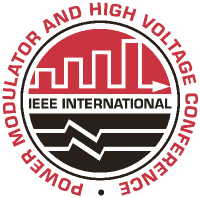Speaker
Heather O'Brien
(US Army Research Laboratory)
Description
The U. S. Army Research Laboratory has an ongoing program to develop high-voltage silicon carbide (SiC) power thyristors for future Army pulsed power systems. Previously, these SiC thyristors were switched at relatively wide pulse widths to evaluate high-current capability for single pulse events. More recent evaluations investigated minimum turn-on delay and dI/dt limitations while switching at a pulse width of 1 micro-second for short-burst and low-duty cycle applications. SiC thyristors having a 1 cm-squared chip area, and designed for 10 – 15 kV blocking, were switched for short 3-pulse bursts. A current amplitude of 1 kA (1.9 kA/cm-squared over the device’s active area) was switched at a rate of 100 pulses-per-second, and 500 A was switched at a higher rate of 500 pulses-per-second. Initial switching evaluations were limited by the charging power supply and the gate circuit of the thyristor. Fast-switching capability of the 10 – 15 kV thyristors will be evaluated at higher current and pulse rate following modifications to these external components. Ultimately, turn-on and turn-off time delays of the thyristor will limit switching frequency relative to other semiconductor devices, such as SiC IGBTs and MOSFETs. However, the thyristor’s low on-state losses at high current will enable higher current density and greater power delivery to the load.
This paper will explore the upper current amplitude and pulse rate limitations of the high-voltage SiC thyristors. The maximum number of burst-rate pulses achievable without external cooling will be determined. The benefits and restrictions of using the SiC thyristors in place of other semiconductor and gas switches will be assessed for applications such as thyratron replacement and compact Marx high-voltage generators.
Primary author
Heather O'Brien
(US Army Research Laboratory)
Co-authors
Dr
Aderinto Ogunniyi
(US Army Research Laboratory)
Dr
Sei-Hyung Ryu
(Wolfspeed)
